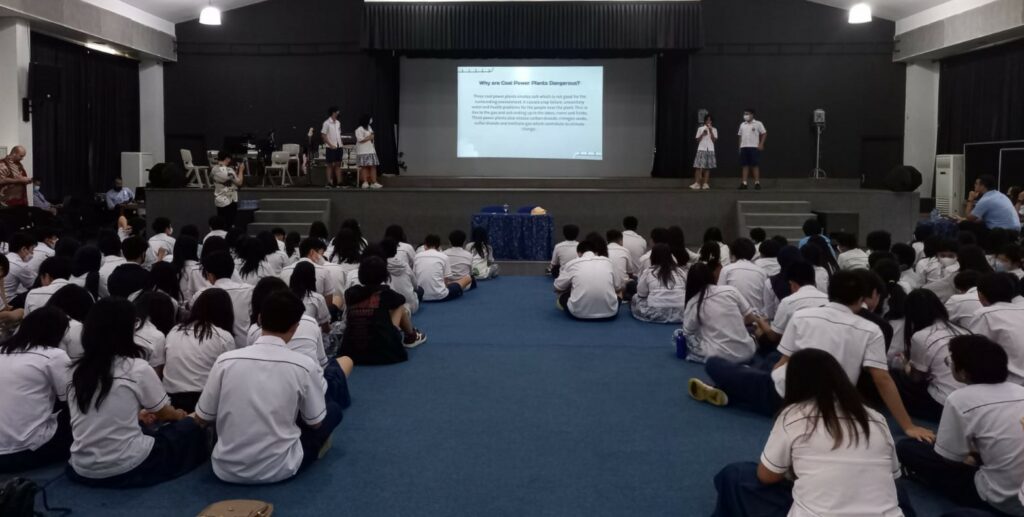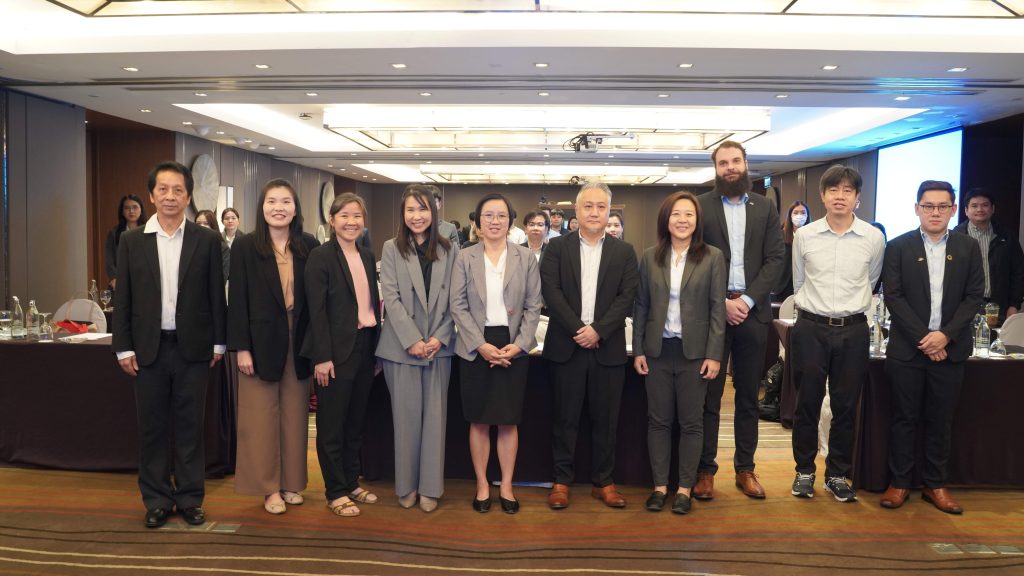Bogor, 22 May 2023 – Project Clean, Affordable and Secure Energy (CASE) for Southeast Asia hosted a follow-up seminar with Sekolah Bogor Raya, featuring two energy transition experts to discuss the current situation in Indonesia with the students from grade 7,8,10 and 11.
Marlistya Citraningrum, Sustainable Energy Access Program Manager, from the Institute of Essential Services Reform (IESR) initiated the first discussion by noting that energy transition is not a commonly discussed topic in informal conversation. Unfortunately, the awareness of clean energy as a topic and the importance of energy transition are still considered exclusive and many have yet to grasp he urgency of discussing them
When Citra, as many called her, asked the students about their impression on energy transition. Some agreed that it is an urgent matter due to climate change, pollution and health-related issues, while others were not convinced of its immediate urgency. She further explained that in Indonesia, the narrative of the energy transition is still ongoing, primarily taking place within government bodies. Even some journalists require context and capacity building when writing about the energy transition. Hence, she emphasized that discussing energy transition in informal conversation could accelerate knowledge transfer from experts to the general public and help shape the narrative of energy transition.
The next panelist was Fajrin Hanggoro, Advisor on Energy Policy from the Deutsche Gesellschaft für Internationale Zusammenarbeit (GIZ) Indonesia. He presented the current situation of energy transition in Indonesia from a technical perspective and on how clean energy can benefit the communities. He shared a story about the utilization of solar PV in the agriculture sector, focusing on a solar powered water pump for irrigation in Tampara Village on Kaledupa Island, Sulawesi.
The project in Kaledupa addresses the lack of energy access on the island, as the electricity was previously available for only 14 hours a day from a diesel generator. Through this project, farmers are introduced to shifting the irrigation system to daytime by utilizing the Agri-PV system. This initiative has had several impacts on the communities, including economic benefit through reduced fuel cost, the creation of more sustainable jobs, avoidance of emissions from diesel generators, and a shift in the communities mindset toward clean energy.
After the panelists presented their materials, it was time for the students to present their findings and campaign ideas developed during the first mentoring session/workshop held in April 2023. Several groups from seventh and eleventh grade presented various energy transition and climate-related issues, including energy efficiency, air ventilation, access to clean water, sustainable transportation and the risks associated with coal power plants. They presented their proposed solutions and campaign ideas through diverse platforms, such as social media posts, posters and videos to advocate their findings.
Finally Citra, Fajrin and Agus Tampubolon as CASE Indonesia’s Project Manager provided feedback to the students on their findings and campaigns, and how they can continue to communicate the issues of energy transition and climate change using the knowledge they have acquired.
Note: CASE for Southeast Asia is a collaboration project between the Institute of Essential Services Reform (IESR), GIZ Indonesia and the Ministry of Development Planning (Bappenas) with a mandate of shifting the narrative of energy transition in Indonesia that focuses on decarbonization on the power sector, upscaling renewable energy and energy efficiency, achieving just energy transition and sustainable finance.




